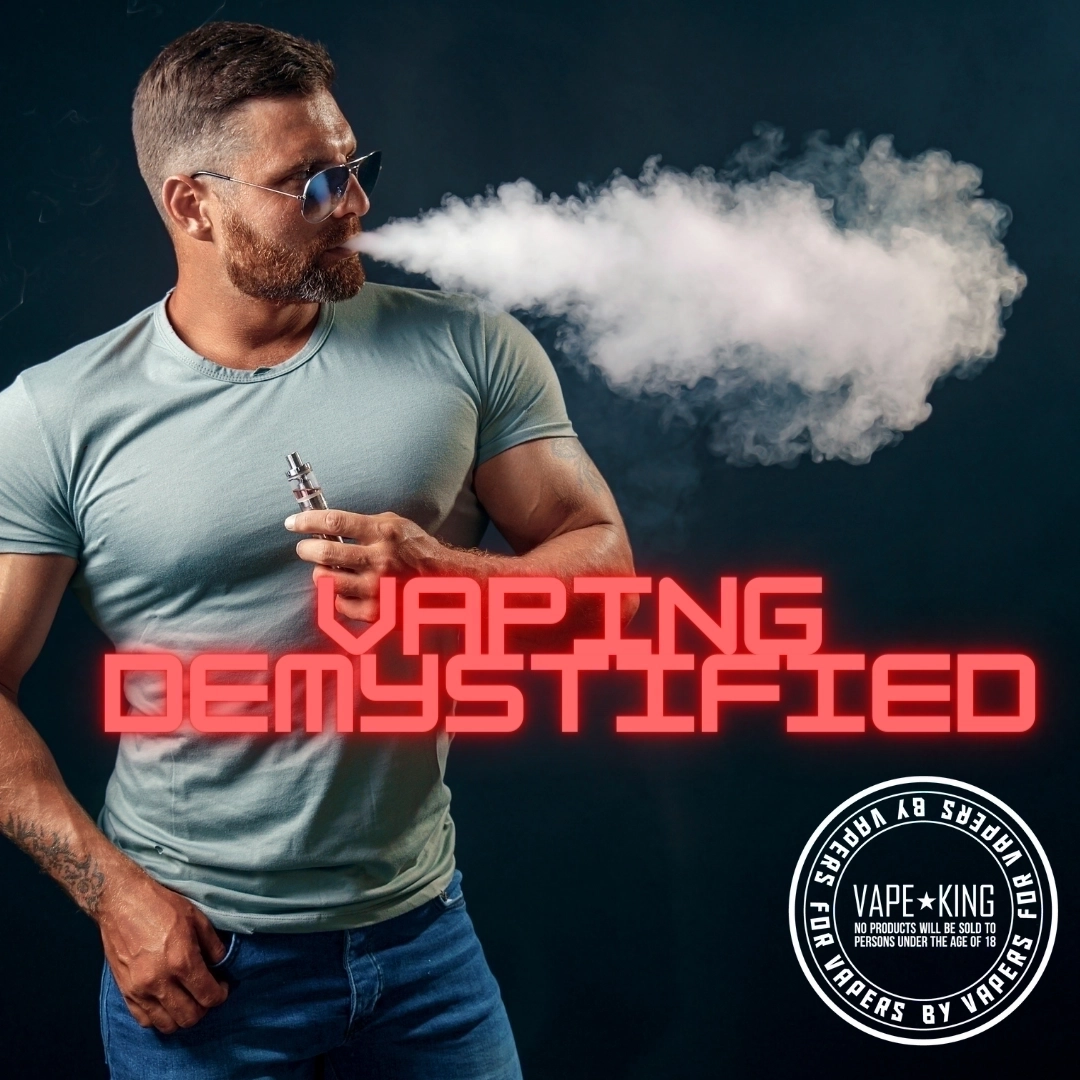Free Shipping on orders R1000 or more!
Vaping Demystified

Vaping has become essentially ubiquitous in America. There are headlines ranging from
news of Juul’s $38 billion valuation to the rise of teen vaping. Most of the headlines about vaping, however, are quite negative—particularly regarding the health effects of vaping. This may be especially relevant to you if you are intrigued with vaping, yet haven’t tried out of fear of illness or some other health problem.
Unfortunately, many conversations about health and vaping often rely on rumors and misguided arguments. They stoke fear in the eyes of potential or current vaporizer users —even though many of these critics’ arguments are tenuous at best. We are here to change that discussion.
Ultimately, vaping has been unfairly criticized for adverse health effects, even though vaping is safer than smoking. By clearing up some of the misconceptions, you will be able to understand the consequences of vaping before you get started.
Vaping: Health Misconceptions and Truths
So let’s start with the loudest misconception that vaping is somehow more dangerous
than smoking. Often, studies in the media about the dangers of vaping as compared to cigarettes are misleading and contradictory. For instance, one common fear of vaping is that vaping causes “popcorn lung” in vaporizer users. Popcorn lung is a condition that makes it difficult to breathe. However, the media often doesn’t state that diacetyl, the chemical that causes popcorn lung, is also found in ordinary cigarettes at a rate of 100 times higher than that found in vaporizers.
The critics have it backward. Vaping is safer than smoking. In fact, the National Academy of Sciences, which is a nonprofit, non-governmental organization, released a report last year stating that the use of vaporizers and e-cigarettes is much safer than smoking and that there are no long-term health effects associated with vaping. Specifically, the National Academy of Sciences’ report concluded that second-hand aerosol from vaping is safer than second-hand tobacco smoke, that vaping is less addicting than smoking, that switching from smoking to vaping can improve respiratory function and symptoms in individuals who have COPD or asthma, and that switching from smoking to vaping reduces overall health risks.
The conclusions are overwhelming—especially considering the rhetoric from anti- tobacco groups and state health departments who have argued that vaping is worse than smoking. Yet the National Academy of Sciences is not alone. The American Cancer Society admitted that vaping provides a reduced risk compared to smoking. The Office of the Surgeon General of the United States said that the effects of e-cigarettes on the human body resemble the effects on the body from nicotine gum, patches and lozenges. This is just a collection of the respected authorities that have implicitly disagreed with those loud individuals and groups that provide flimsy evidence on the dangers of vaping.
In addition, there have been other studies around the world that have shown that vaping is safer than smoking. For instance, Public Health England, an executive agency of the Department of Health and Social Care in the United Kingdom, concluded that vaping is 95% less harmful than tobacco. Because of this, the UK government recently launched a campaign to convince UK smokers that vaping is not as harmful as smoking and, in fact, is a great way to actually quit smoking. Data from Public Health England’s smoking cessation program revealed that 65% to 68% of people who used e-cigarettes along with nicotine replacement therapies successfully stopped smoking. A good number of countries around the world have strong laws on vaping—whether that is due to strong voices within the anti-vaping community or something else. But the bottom line is that studies have shown that vaping is less dangerous than smoking cigarettes.
Clarifying the Misconceptions
Vaporizers and e-cigarettes are extremely popular. In fact, almost one in 20 U.S. adults
now use e-cigarettes. While their motives may vary, all of them obtain one simple benefit. That benefit is that vaping is safer than smoking. Ultimately, the vaping naysayers do not have science on their side. Whether you haven’t yet vaped or are a regular user of vaporizers or e-cigarettes, you should understand that much of the vaping criticism is misguided. Nothing should stop you from doing your own research. If you choose to, however, you will discover that the critics’ arguments have little to no merit.
No posts found
Write a review

